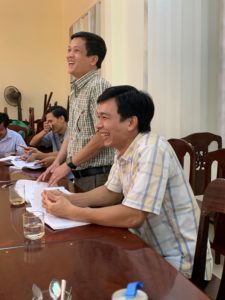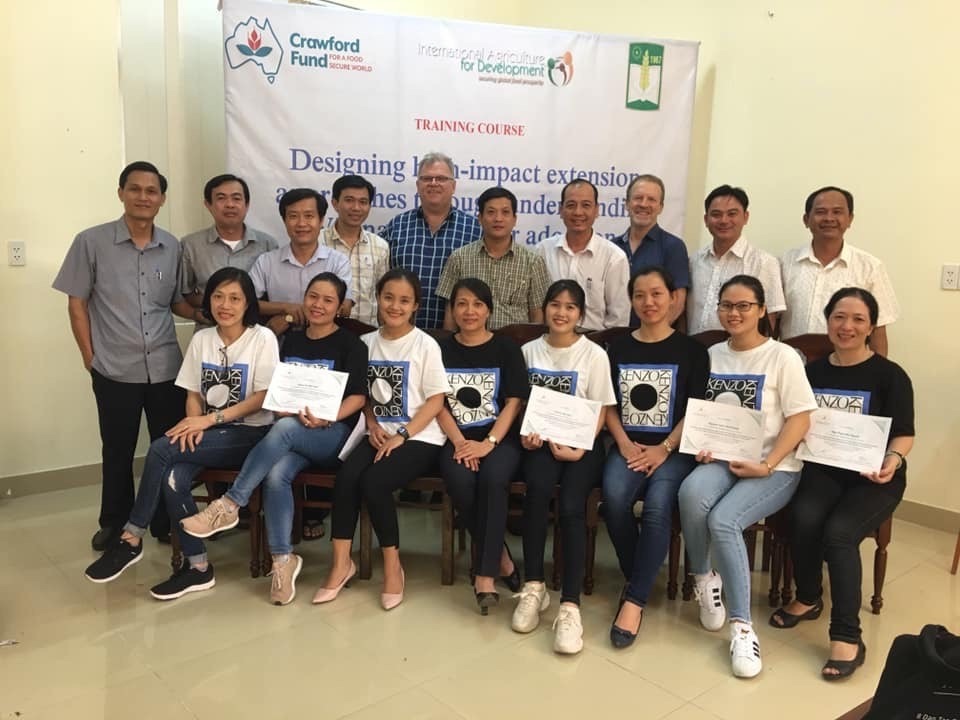

High Impact Extension creates lasting impression in Vietnam
November 7, 2019

A group of 16 extension professionals from Vietnam participated in a recent 3 day intensive training program titled “Designing high-impact extension approaches through understanding Vietnamese farmer adoption practices”. The program, supported by our SA Committee was delivered by Dr Jay Cummins and Dr Geoff Kuehne, and was conducted at the University of Agriculture and Forestry in Hue. This followed earlier similar training in India and Iran.
The training program comprised a series of ‘hands-on’ small group practical discussions and role-playing exercises that focused on understanding farmer decision making and adoption processes, impact pathway analysis and the use of the ADOPT model. ADOPT (Adoption and Diffusion Outcome Prediction Tool) is an MS Excel-based tool that evaluates and predicts the likely level of adoption and diffusion of specific agricultural technologies and practices, with a particular target population in mind.
A field visit to a local farmer group provided participants with the opportunity to develop their farmer group interview and facilitation techniques, problem identification and analysis.
The training program successfully equipped participants with a range of planning, design and implementation skills in an effort to help them in the design of extension training and capacity building programs.
“Based on small group activities performed by participants, it is evident that participants from the program can now confidently applying course skills in the development of suitable extension activities and intervention strategies required for addressing the constraints to achieving high levels of practice change and adoption by farmers,” said Jay, who has been involved in a number of Crawford Fund training activities and has worked extensively across Africa, the Middle East, Asia and Pacific regions.

“This was a very enthusiastic and committed training group, with an equal balance of male and female participants. Importantly the participants selected were ideal for the program, in that the majority were all ‘high calibre’ field-based extension professionals, and those who were not were engaged in agricultural extension education and training at the University,” he reported.




